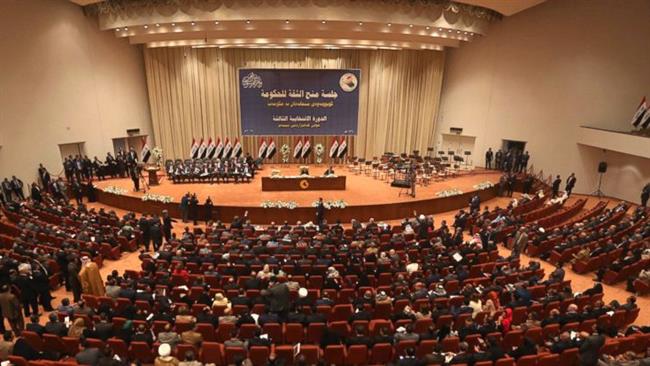Iraqi Hashd al-Sha’abi forces find dozens of bodies in mass grave in Kirkuk
Iraqi fighters from the Popular Mobilization Units have found a mass grave in the country’s northern province of Kirkuk, which contained the bodies of dozen of civilians believed to have been executed by Daesh Takfiri terrorists when they were in control of an area there.
A security source, speaking on condition of anonymity, told the National Iraqi News Agency (NINA) that the pro-government fighters, better known by the Arabic name Hashd al-Sha’abi, made the discovery in the al-Riyad region of Hawijah, located 45 kilometers west of the provincial capital city of Kirkuk.
Iraqi Prime Minister Haider al-Abadi said on October 5 2017 that armed forces had liberated Hawijah, driving Daesh Takfiris out of their last bastion in Kirkuk province.
On January 9, Iraqi police official Omar al-Hajjar said security personnel had found a mass grave containing the bodies of at least 20 women tortured and killed by Daesh near the northern city of Mosul.
Hajjar added that the victims were executed “as they were trying to escape toward the eastern side of the city during the liberation offensives last year.”
He said the bodies of the victims along with their identity cards “have been transferred to the forensic medicine department in Mosul to be returned to their relatives.”
Iraqi legislator Haji Kendor told Arabic-language al-Ghad Press news agency on December 29, 2017 that search teams had found a mass grave that contained the bodies of 80 elderly and disabled women, near the town of Sinjar, situated over 400 kilometers northwest of the capital Baghdad.
Kendor added that some of the victims had been buried alive, noting that Daesh terrorists had buried the women from the Izadi minority group in a fish farm, and the grisly discovery was made by local search teams.
Back in August 2014, Daesh terrorists overran the town of Sinjar, killing, raping, and enslaving large numbers of Izadi Kurds.
The region was recaptured in November 2015, during an operation by Kurdish Peshmerga forces and Izadi fighters.
The Office of Kidnapped Affairs in the northern Iraqi city of Dohuk said last year that around 3,500 Izadi Kurds were still being held captive by Daesh, adding that a large proportion of the abductees were women and children.
The Endowments and Religious Affairs Ministry of the semi-autonomous Kurdistan Regional Government announced last August that Daesh’s genocide against Izadis had forced nearly 360,000 members of the minority to flee their hometowns, and another 90,000 to leave Iraq and take refuge in others countries.
President Yoon Suk Yeol to be removed from office
At least 19 Gazans killed by Israeli airstrikes since dawn: Medics
Leader: Iran neither has nor needs proxy forces
US fighter aircraft shot down ‘in friendly fire’ amid aggression on Yemen
Yemeni FM: Israel’s sponsors accountable for ongoing aggression on Sana’a
Eight Palestinians killed as Israel attacks Gaza school, hospitals
VIDEO | Rome, Milan host new protests in solidarity with Palestinians
Dec. 21: ‘Axis of Resistance’ operations against Israeli occupation




















 This makes it easy to access the Press TV website
This makes it easy to access the Press TV website